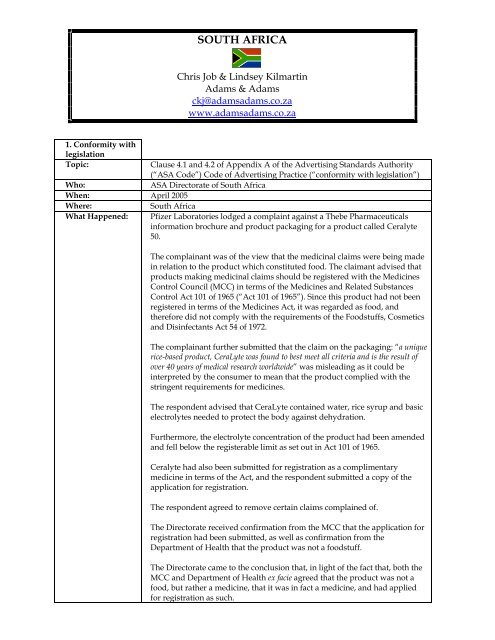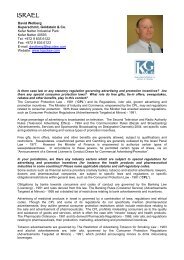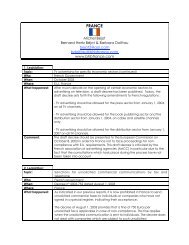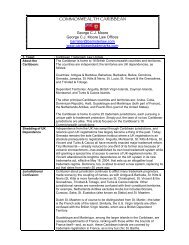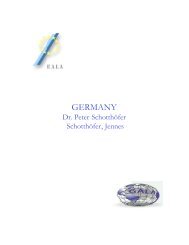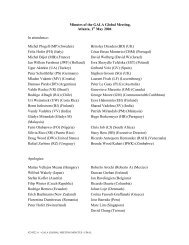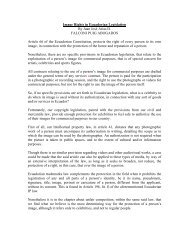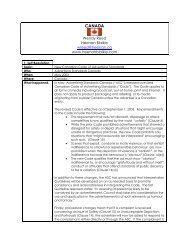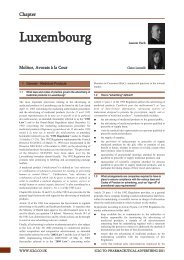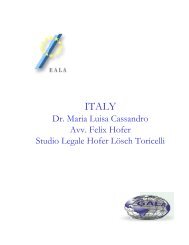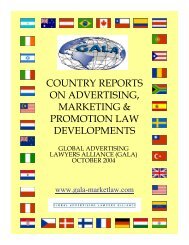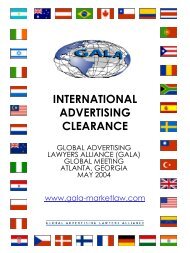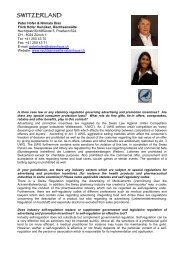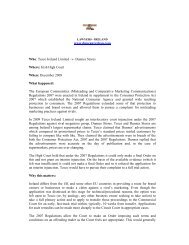list of contributors - GALA
list of contributors - GALA
list of contributors - GALA
You also want an ePaper? Increase the reach of your titles
YUMPU automatically turns print PDFs into web optimized ePapers that Google loves.
SOUTH AFRICA<br />
Chris Job & Lindsey Kilmartin<br />
Adams & Adams<br />
ckj@adamsadams.co.za<br />
www.adamsadams.co.za<br />
1. Conformity with<br />
legislation<br />
Topic: Clause 4.1 and 4.2 <strong>of</strong> Appendix A <strong>of</strong> the Advertising Standards Authority<br />
(“ASA Code”) Code <strong>of</strong> Advertising Practice (“conformity with legislation”)<br />
Who: ASA Directorate <strong>of</strong> South Africa<br />
When: April 2005<br />
Where: South Africa<br />
What Happened: Pfizer Laboratories lodged a complaint against a Thebe Pharmaceuticals<br />
information brochure and product packaging for a product called Ceralyte<br />
50.<br />
The complainant was <strong>of</strong> the view that the medicinal claims were being made<br />
in relation to the product which constituted food. The claimant advised that<br />
products making medicinal claims should be registered with the Medicines<br />
Control Council (MCC) in terms <strong>of</strong> the Medicines and Related Substances<br />
Control Act 101 <strong>of</strong> 1965 (“Act 101 <strong>of</strong> 1965”). Since this product had not been<br />
registered in terms <strong>of</strong> the Medicines Act, it was regarded as food, and<br />
therefore did not comply with the requirements <strong>of</strong> the Foodstuffs, Cosmetics<br />
and Disinfectants Act 54 <strong>of</strong> 1972.<br />
The complainant further submitted that the claim on the packaging: “a unique<br />
rice-based product, CeraLyte was found to best meet all criteria and is the result <strong>of</strong><br />
over 40 years <strong>of</strong> medical research worldwide” was misleading as it could be<br />
interpreted by the consumer to mean that the product complied with the<br />
stringent requirements for medicines.<br />
The respondent advised that CeraLyte contained water, rice syrup and basic<br />
electrolytes needed to protect the body against dehydration.<br />
Furthermore, the electrolyte concentration <strong>of</strong> the product had been amended<br />
and fell below the registerable limit as set out in Act 101 <strong>of</strong> 1965.<br />
Ceralyte had also been submitted for registration as a complimentary<br />
medicine in terms <strong>of</strong> the Act, and the respondent submitted a copy <strong>of</strong> the<br />
application for registration.<br />
The respondent agreed to remove certain claims complained <strong>of</strong>.<br />
The Directorate received confirmation from the MCC that the application for<br />
registration had been submitted, as well as confirmation from the<br />
Department <strong>of</strong> Health that the product was not a foodstuff.<br />
The Directorate came to the conclusion that, in light <strong>of</strong> the fact that, both the<br />
MCC and Department <strong>of</strong> Health ex facie agreed that the product was not a<br />
food, but rather a medicine, that it was in fact a medicine, and had applied<br />
for registration as such.


